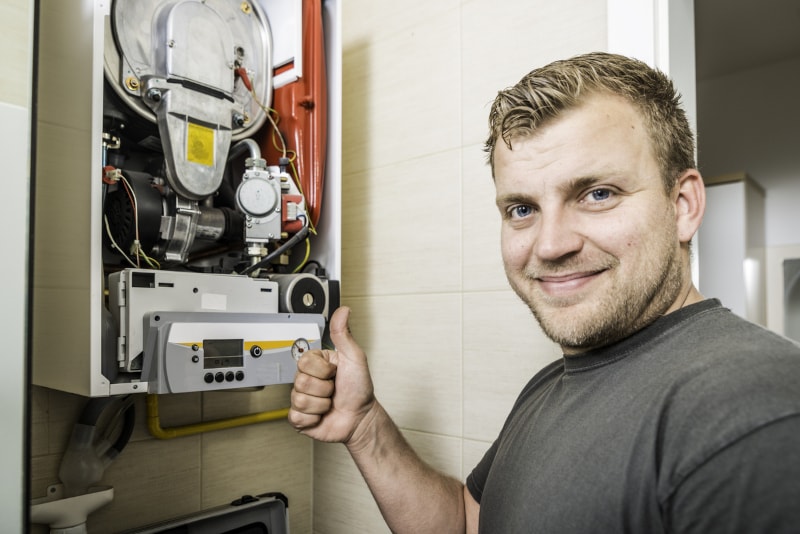The different types of furnaces that homeowners in Asheville, NC, can find on the market include gas, electric, and oil furnaces. Each type comes with advantages and disadvantages. Below, we will discuss the pros and cons of gas, electric, and oil furnaces.
Gas Furnaces
These furnaces use natural gas to heat your home. Natural gas is combustible and offers an excellent option to heat your indoor air.
One of the advantages of gas-powered furnaces is that they are often more efficient than their electric counterparts. Depending on where you are and what the market looks like, natural gas prices can be lower than that of electricity, too.
Gas furnaces also heat your home quickly, creating the warm and comfortable indoor environment you want in a short time. Also, natural gas is available in many areas, making it easy to find fuel for your system. Gas furnaces are also more common than other furnaces, so it’s easier to find service technicians who can repair them.
When you consider their disadvantages, gas furnaces emit some carbon dioxide while running. This gas is harmful to the environment. Also, if the components involved in combustion become faulty, your system can produce the same chemical, which can harm your health. A gas furnace is also usually more expensive to install than an electric one.
After installation, the system will serve you efficiently for 10-15 years with regular maintenance. This lifespan is shorter compared to that of electric furnaces.
Electric Furnaces
The installation costs of electric furnaces are lower compared to other types of systems. Since these furnaces don’t produce gases that can harm you or the environment, it makes them one of the safest options available.
Electric furnaces are also easy to couple with modern HVAC appliances such as smart thermostats. These furnaces are highly efficient, as they have fewer areas where heat can escape through, such as chimneys.
They also have a long lifespan, lasting between 20 and 30 years on average. An increased lifespan means that you can focus more on maintenance than having to replace your furnace sooner.
One of the disadvantages of electric furnaces is that they are relatively expensive to run. If you skip maintenance services, the energy consumption goes even higher, leading to higher utility costs.
Oil Furnaces
Like gas furnaces, oil ones burn fuel to warm your indoor air. As a result, they often put out more heat than electric systems, making them more efficient, particularly at warming up larger homes. They also tend to burn hotter and last longer than gas systems. Where gas furnaces tend to last 15-20 years, oil-burning ones can work for as long as 30 years.
When considering the disadvantages, the installation cost for these systems is higher than that of other furnaces. Oil furnaces also require more frequent maintenance than electric ones. They produce dirt and soot, which can make it harder for parts to work, reducing their efficiency.
When the price of oil goes up, these systems become more expensive to use. Also, you have to proactively schedule the delivery of fuel, as opposed to other heating systems that run autonomously.
Since these systems are not so common nowadays, the number of technicians that can repair them is gradually reducing. This can mean that the available technicians may charge more for repair services.
It is essential to compare the pros and cons of various furnace systems to help you arrive at a system that correctly matches your needs and preferences. Call Gentry Service Group for exceptional heating services whenever you need to install a new furnace. One of our experienced technicians will professionally install your system to ensure it delivers high comfort levels and energy savings.
Image provided by iStock




